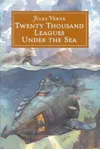Picture a French storyteller who sailed readers across uncharted seas and raced them around the globe—meet Jules Verne! Born in 1828, this visionary author spun tales of adventure and science fiction that predicted submarines, space travel, and more. His boundless imagination and knack for blending science with storytelling made him a literary legend whose works still captivate dreamers today.
The Making of Jules Verne
Jules Verne was born in Nantes, France, to a lawyer father and a mother with a flair for the arts. Growing up by the bustling port, young Jules was enchanted by ships and tales of far-off lands, sparking his lifelong love for adventure. Initially nudged toward law, Verne’s heart lay in writing. By his 20s, he was penning plays and short stories, mingling with literary giants like Victor Hugo. His big break came when publisher Pierre-Jules Hetzel saw his genius, launching the iconic Voyages Extraordinaires series.
Jules Verne’s Unforgettable Stories
Verne’s novels are a thrilling mix of adventure, science, and imagination. Twenty Thousand Leagues Under the Sea (1870) dives into the mysterious depths with Captain Nemo and his submarine, the Nautilus—a marvel that predated real submarines. Around the World in Eighty Days (1873) follows Phileas Fogg’s daring race against time, blending humor, suspense, and global exploration. Journey to the Center of the Earth (1864) unearths a hidden world beneath our feet, showcasing Verne’s knack for grounding wild ideas in science. His style, vivid and accessible, paired meticulous research with a sense of wonder, making complex concepts feel like grand adventures.
Verne’s Voyages Extraordinaires, a 54-novel series, aimed to explore the world’s frontiers—geographic, scientific, and human. His stories, often serialized, hooked readers with cliffhangers and inspired a generation to dream bigger. Unlike many sci-fi writers, Verne rooted his tales in plausible science, earning him the title 'Father of Science Fiction' alongside H.G. Wells.
Why Jules Verne Matters
Jules Verne’s impact ripples through literature, science, and pop culture. His novels foresaw inventions like scuba gear, electric submarines, and even lunar modules, inspiring scientists and inventors. Translated into over 150 languages, he’s one of the most translated authors ever, bridging cultures with universal tales of human curiosity. From Disney adaptations to steampunk aesthetics, Verne’s legacy fuels modern storytelling. His belief in progress and exploration still resonates, reminding us to look beyond the horizon.
About Jules Verne
- Born: February 8, 1828, in Nantes, France
- Key Works: Twenty Thousand Leagues Under the Sea, Around the World in Eighty Days, Journey to the Center of the Earth
- Notable: Predicted technologies like submarines and space travel
- Died: March 24, 1905, in Amiens, France
Ready for an adventure? Grab Twenty Thousand Leagues Under the Sea and plunge into Jules Verne’s thrilling world of science and wonder!













































